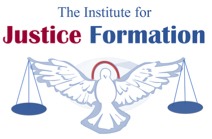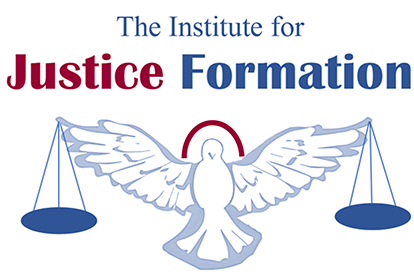Resources

Ancient Israel, Vol.1: Social Institutions, by Roland de Vaux. De Vaux provides a technical study of Ancient Israel and provides a helpful foundation for theological reflection on the Nation of Israel. Topics include law and justice, economics, family life, slavery, and war.
The Faith of Israel, by H.H. Rowley. Rowley provides a classical theological study that shows the deep interconnections among justice, righteousness, law, and love are intertwined in the Nation of Israel.
The Social Visions of the Hebrew Bible, by J. David Pleins. Pleins thoroughly examines the Hebrew Bible to ascertain its social vision within the context of ancient Israel.
God Loves Justice: A User-Friendly Guide to Biblical Justice & Righteousness, by Jessica Nicholas. Through her text, Ms. Nicholas offers a comprehensive review of Scripture from the Old and New Testaments and particularly from the Hebrew text as to the nature of God’s love and plan for justice.
The Bible and Social Justice: Old Testament and New Testament Foundations for the Church’s Urgent Call, edited by Cynthia L. Westfall and Bryan R. Dyer. This excellent text offers a stunning contrast between God’s desire and definition of justice through both the Old and New Testaments in comparison to Social Justice as enacted in our society.
The Prophetic Imagination, by Walter Brueggemann. Brueggemann provides his readers with insight on how the prophets imagined the ways God desires justice for his creation and leads readers into the ways and life of Jesus and how Jesus lived out justice in the world.
Science and Genesis, by N.T. Wright, John Polkinghorne, Alister McGrath. In this video, these scholars and others examine how reading Genesis for its rich theological significance rather than as a mere factual, journalistic account reveals the closeness of heaven and earth and humanity’s mission to reflect God.
The Color of Compromise, by Jemar Tisby. Tisby takes readers on a historical journey from the colonies to present day and examines the ways the American church has compromised what the Bible teaches about human dignity and equality. Tisby doesn’t leave us there but also charts a path towards what a more equitable and inclusive American Christian environment could look like.
Journey toward Justice: Personal Encounters in the Global South, by Nicholas P. Wolterstorff. Famed philosopher Nicholas Wolterstorff explores the biblical underpinnings of justice and recounts how his experiences in Honduras, South Africa, and the Middle East have influenced his thoughts on justice.
Womanist Theological Ethics: A Reader, edited by Katie Geneva Cannon, Emilie M. Townes and Angela D. Sims. Writing across theological disciplines, nine African American women theologians and scholars reflect on what it means to live as responsible doers of justice.
Common Prayer: A Liturgy for Ordinary Radicals, by Shane Claiborne, Jonathan Wilson-Hartgrove, Enuma Okoro. This yearly devotional allows readers to greet each day together, remembering significant dates and Christian heroes in church history, as well as important historic dates in the struggle for freedom and justice.
The Power of Community: the Journey of a Former White Supremacist, by the Washington Theological Consortium. This powerful video tells the story of how three college students’ evolving relationships, table fellowship, and practice of listening to understand helped one of the students recognize and confront the evil of his white nationalist beliefs. The book Rising Out of Hatred: The Awakening of a Former White Nationalist by Eli Saslow also chronicles the young man’s journey to question and confront his worldview.
Open-Mindedness in Philosophy of Religion, edited by Gregory E. Trickett and John R. Gilhooly. In chapter four, Open-Mindedness and Justice, John Lee, the Academic Dean of the John Leland Center, argues for a more biblical framework for understanding virtues, especially open-mindedness, by considering both the actor and the recipient of the virtuous action.

